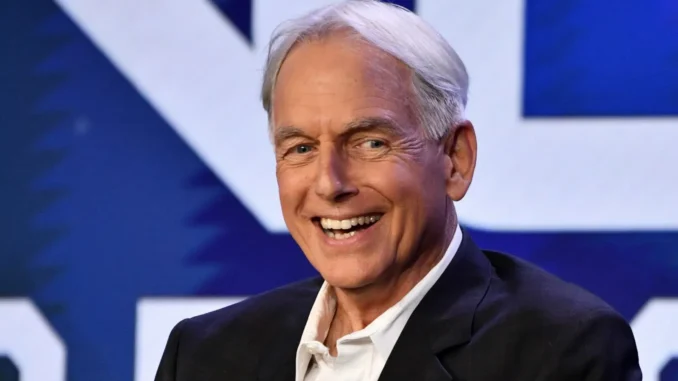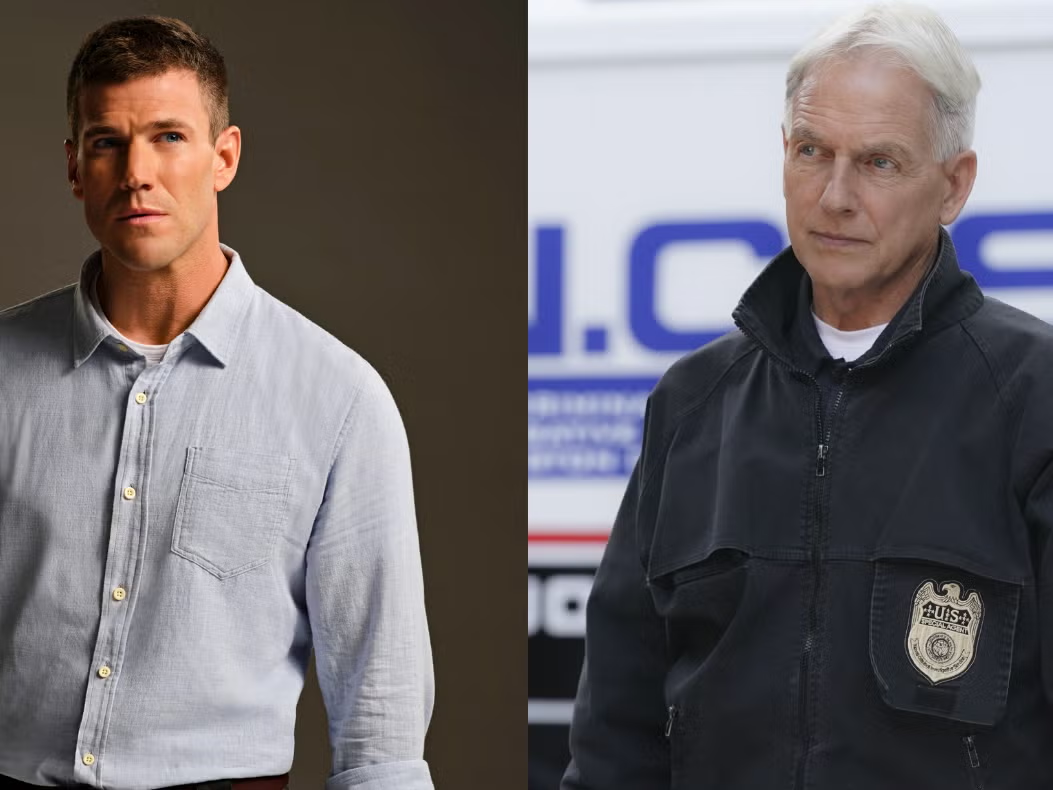
Introduction
What if NCIS—one of the longest-running and most beloved shows in TV history—wasn’t originally meant to be about Leroy Jethro Gibbs at all?
Mark Harmon, the actor who became the face of the franchise, recently opened up about what the show was supposed to look like before it became the phenomenon we know today. And let’s just say, the original premise might surprise even the most loyal fans.
In this deep dive, we’ll explore what Harmon revealed about the early days of NCIS, how its creators completely transformed the show’s direction, and why those changes made it a lasting success.
The Birth of NCIS: A Spin-Off That Almost Wasn’t
Before NCIS became the juggernaut it is today, it started as a humble idea—a spin-off from “JAG.”
The CBS legal drama JAG introduced audiences to the Naval Criminal Investigative Service in a backdoor pilot titled “Ice Queen” and “Meltdown.” But here’s the twist: NCIS was initially envisioned as something very different—a legal-focused procedural with only occasional cases involving military crimes.
According to Mark Harmon, the concept was “much drier and procedural” than what viewers ultimately got. The focus was supposed to lean more toward courtroom drama, with investigations taking a back seat.
That all changed when Harmon and creator Donald P. Bellisario stepped in with a bold new vision.
Mark Harmon’s Surprising Revelation
In a rare interview, Harmon shared that the original pitch for NCIS wasn’t even close to the team-driven crime-solving show fans love.
“It wasn’t going to be about Gibbs, and it wasn’t going to be about field agents,” Harmon explained. “It was going to be a lot more about the system itself—the bureaucracy, the structure.”
Imagine NCIS as a show about policy meetings and military reports instead of Gibbs interrogating suspects in the famous orange room. Sounds different, right?
Donald Bellisario’s Influence: The Game-Changer
When Donald Bellisario got involved, everything shifted. The veteran producer behind Magnum P.I., Quantum Leap, and JAG believed audiences wanted character-driven storytelling rather than another procedural.
He reimagined NCIS as a show centered on a small, quirky, yet fiercely capable investigative team.
That decision would redefine not only the series but also Mark Harmon’s entire career.
From Bureaucracy to Brotherhood: The Shift That Saved NCIS
Bellisario and Harmon agreed that what makes crime shows memorable isn’t just the crimes—it’s the characters.
So they stripped away the red tape and focused on relationships. The result was a team dynamic that felt like family, complete with witty banter, emotional moments, and moral dilemmas.
Instead of military courtrooms, audiences got Gibbs’ famous rules, Abby’s caffeine-fueled lab sessions, Tony DiNozzo’s charm, and Ducky’s fascinating forensics stories.
That pivot transformed NCIS from a potential niche procedural into a mainstream phenomenon.

Mark Harmon’s Connection to Gibbs
Mark Harmon didn’t just play Gibbs—he crafted him.
When Harmon first read the script, Gibbs was written as a more generic leader. But Harmon added the grit, stoicism, and depth that made the character unforgettable.
“I saw him as someone with a hard shell but a huge heart underneath,” Harmon once said. “He’s someone who’s been through hell and still shows up for his team.”
It’s hard to imagine NCIS without Gibbs’ quiet authority or his infamous head slaps, but those were all Harmon’s touches.
NCIS’ Early Struggles and the Fight for Survival
Even with Harmon’s presence, the show didn’t take off immediately.
During its first season, NCIS struggled with ratings and faced criticism for being too slow-paced compared to other crime shows like CSI. But Harmon and Bellisario believed in their vision.
Their persistence paid off. By Season 3, thanks to stronger writing and deeper character development, NCIS became a top-10 hit.
Behind the Scenes: The Chemistry That Made It Work
What truly made NCIS click was the chemistry among the cast.
Michael Weatherly (Tony), Pauley Perrette (Abby), David McCallum (Ducky), and Sasha Alexander (Kate) all brought unique energy to the show. Harmon encouraged collaboration, often telling his co-stars, “Let’s make this real.”
That on-set camaraderie translated into authentic relationships onscreen. The team felt less like coworkers and more like a family—something that resonated deeply with fans.
NCIS’ Secret Ingredient: Heart Over Hardware
While other crime dramas leaned heavily on tech and flashy effects, NCIS stood out for its heart.
Mark Harmon once said that Bellisario’s mantra was simple: “Don’t make the show about death—make it about life.”
That approach humanized the stories. Each episode wasn’t just about solving crimes; it was about understanding the people behind them. Whether it was a Marine’s family or a fallen sailor’s honor, NCIS always found its emotional core.
The Evolution of Gibbs: From Leader to Legend
Over time, Gibbs became more than a character—he became an icon.
His rules, his coffee addiction, his silence—all became trademarks. Fans quoted him, debated him, and adored him.
Harmon revealed that Gibbs’ evolution was deliberate: “We wanted him to grow with every loss, every case, every team member that came and went.”
And grow he did. Gibbs transformed from a hard-edged leader into a man haunted by his past but still driven by purpose—a character study that gave NCIS emotional depth.
When NCIS Almost Lost Its Star
Few know that Harmon nearly walked away from NCIS early on.
Creative tensions with Bellisario in the show’s fourth season caused friction. CBS eventually sided with Harmon, and Bellisario exited the show. Harmon later admitted the decision was painful but necessary for the series’ longevity.
“I loved Don, but we saw the show differently,” he said. “I just wanted to make it the best version of itself.”
That leadership solidified Harmon as both the face and the heart of NCIS.
How the Original Premise Still Lives On
Interestingly, fragments of the original concept still echo throughout NCIS.
The procedural structure, the naval jurisdiction, and the emphasis on military justice remain core themes. But they’re now woven seamlessly into the personal stories of the agents.
It’s a brilliant blend—one that satisfies both procedural purists and character-driven drama lovers.
NCIS’ Enduring Legacy
Two decades later, NCIS has spawned multiple spin-offs—NCIS: Los Angeles, New Orleans, Hawai‘i, and Origins.
Mark Harmon’s decision to embrace the reworked premise helped birth an entire television universe.
Even after leaving the show, Harmon remains deeply connected to the franchise as an executive producer. His fingerprints are still everywhere—from the writing style to the moral compass that defines each episode.
What Mark Harmon Thinks of NCIS Today
When asked how he feels seeing NCIS continue without Gibbs, Harmon smiled.
“It’s bigger than any one person,” he said. “We built something that lasts because it’s about people doing good work—something that will always matter.”
It’s that grounded philosophy that keeps NCIS relevant in an era dominated by streaming giants and short-lived hits.
The Lesson Behind the Story
Harmon’s revelation about the original premise is more than a fun trivia fact—it’s a reminder that great shows evolve.
What began as a bureaucratic concept became a human story about loyalty, justice, and family.
Sometimes, the best ideas are the ones that break the mold.
Conclusion
Mark Harmon’s insight into the original NCIS premise reveals just how close we came to losing one of TV’s most beloved dramas before it even began. Thanks to creative risks, character-driven storytelling, and Harmon’s unwavering leadership, NCIS became more than a procedural—it became a cultural touchstone.
Its legacy proves that audiences don’t just crave action or mystery—they crave connection. And that’s exactly what NCIS delivered, season after season.
FAQs
1. What was NCIS originally supposed to be about?
It was meant to focus more on naval bureaucracy and legal systems rather than a team of field agents solving crimes.
2. Who changed the direction of NCIS?
Donald P. Bellisario and Mark Harmon reshaped the concept into a character-driven procedural centered on a close-knit investigative team.
3. Did Mark Harmon have creative control over the show?
Yes. Over time, Harmon gained significant influence over the show’s tone, direction, and casting, especially after Bellisario’s departure.
4. Why did the original premise not work?
The bureaucratic focus lacked emotional connection and excitement. Audiences wanted dynamic characters and engaging stories, not policy meetings.
5. Is Mark Harmon still involved with NCIS?
While he no longer stars as Gibbs, Harmon remains an executive producer and continues to shape the NCIS universe creatively.